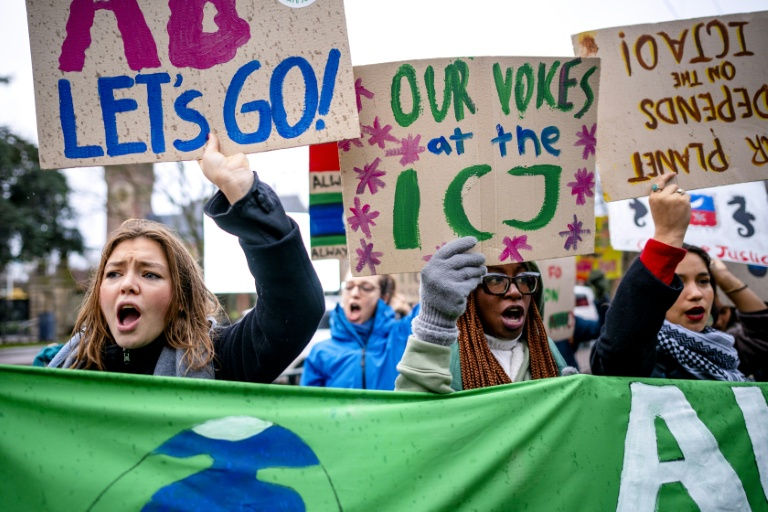Climate Justice Gains Momentum: International Court Reaffirms Countries' Legal Duty to Reduce CO₂ Emissions. OPINION July 24, 2025
- Ana Cunha-Busch
- Jul 23, 2025
- 3 min read

Climate Justice Gains Momentum: International Court Reaffirms Countries' Legal Duty to Reduce CO₂ Emissions
BY CLAUDIA ANDRADE
On July 23, 2025, the International Court of Justice (ICJ), the UN's highest legal body, published a historic opinion that represents a milestone in the fight against climate change: countries have a legal obligation to reduce greenhouse gas emissions and cooperate internationally on effective climate action.
The decision comes at a crucial moment in global history, when time is running out to reverse climate damage. More than a political gesture, the ICJ's opinion carries legal and ethical weight—reinforcing that combating the climate crisis is a moral and legal obligation of states, not just a voluntary choice.
I was personally at the UN headquarters in New York, where I participated in dialogues with international leaders committed to the Sustainable Development Goals. Witnessing the global debate up close and feeling the clamor for concrete action have become milestones in my professional career. Today, seeing the Court reaffirm that excessive carbon emissions can constitute an internationally wrongful act—especially when they harm vulnerable populations—is deeply inspiring.
As a partner at SDW (@sdwforall), a Brazilian company founded to promote access to safe water and climate justice in neglected territories, I cannot help but recognize how closely this decision aligns with our reason for being. Since SDW's founding, we have believed that sustainability is not a trend: it is a non-negotiable commitment to life, equity, and the future.
The Court makes it clear that countries must not only reduce emissions within their territories but also ensure that companies under their jurisdiction act responsibly—including when it comes to the production and financing of fossil fuels. It is a direct message to states and corporations: there is no longer room for inaction.
Although the opinion is advisory, it has significant normative and symbolic value. National courts, international agencies, and governments should consider it as a basis for decisions and public policies. Furthermore, island countries and communities affected by climate change now have a powerful legal instrument to demand reparations, justice, and the protection of their fundamental rights.
Brazil at the Center of the Climate Agenda
This ICJ decision comes at a strategic moment for Brazil, which will host COP30 this year in Belém, Pará, and already occupies a central role in the global climate debate. We are the country with some of the greatest biodiversity on the planet, with the capacity to capture carbon on a large scale and lead by example. However, we face serious domestic challenges, such as the rise of land grabbing and legislative proposals that weaken the fight against deforestation—such as the so-called "Devastation Bill."
The Court's decision serves as a wake-up call: Brazil must align its domestic policies with its international commitments. There is no longer room for rhetoric disconnected from practice. The world is paying attention, and climate responsibility is now backed by legal foundations.
I believe this is a call to action, shared responsibility, and institutional courage. The future demands coherence between words and practice, between goals and attitudes. And in this new chapter of climate history, let us not just be spectators, but conscious and committed protagonists of the planet's regeneration.
@cauvic2





Comments